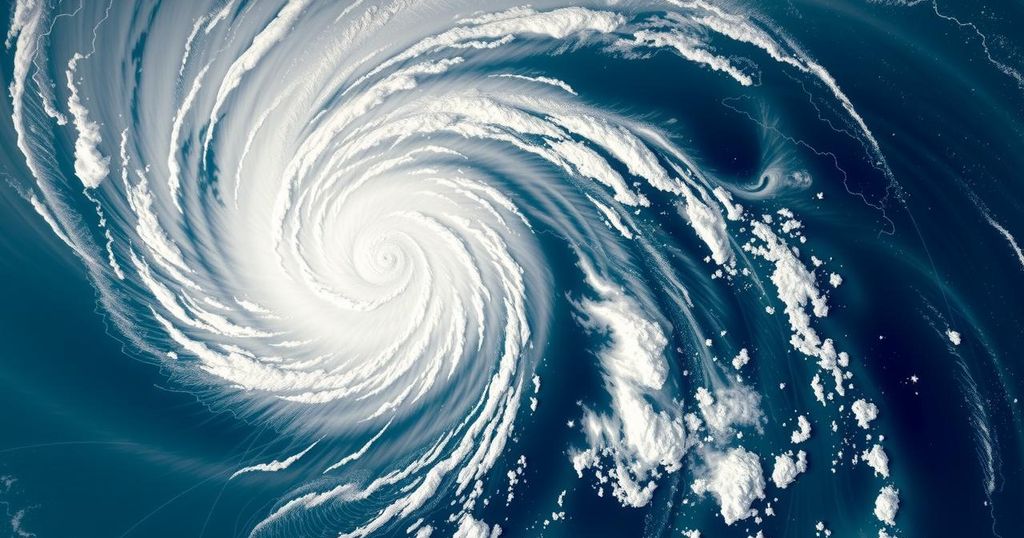Cyclone Chido Causes Severe Damage in Mayotte, Prepares to Hit Mozambique

Tropical Cyclone Chido has devastated Mayotte with winds over 220 km/h, causing significant damage but no immediate casualties. The island remains under red alert, while efforts to assist the affected population are underway. The cyclone is expected to impact Mozambique, potentially affecting millions. This event underscores the increasing severity of cyclones in the region due to climate change.
Tropical Cyclone Chido has inflicted significant damage on Mayotte, a French territory in the Indian Ocean, as it approaches the eastern coast of Africa. With winds exceeding 220 kilometers per hour, the cyclone caused substantial destruction, including the removal of metal roofs from residential structures. Despite the severity of the storm, there have been no immediate reports of casualties. Francois-Xavier Bieuville, the Prefect of Mayotte, characterized this event as the most violent cyclone experienced since 1934, stating that many residents have lost everything.
Currently, the island remains under a red alert status for ordinary civilians, who are advised to stay indoors in secure shelters. Emergency personnel are actively deployed to provide assistance once conditions improve. Notably, Mayotte’s power infrastructure has been severely impacted, with numerous homes left without electricity. French Interior Minister Bruno Retailleau highlighted the extent of the damage, assuring that both state and local emergency services are fully mobilized to assist the affected population.
In addition to Mayotte, the cyclone is also affecting the nearby nation of Comoros, where a red alert has been issued. Authorities express concern over missing fishermen from the region and have implemented strict marine safety measures, including restricting ships to harbor and closing the main airport. As Cyclone Chido is projected to move towards Mozambique, there are grave concerns regarding the impact on the local population, with estimates suggesting that up to 2.5 million individuals might be affected in the northern provinces of Cabo Delgado and Nampula.
Preparations for potential flooding and evacuations are underway in neighboring countries, including Malawi and Zimbabwe, as they brace for the cyclone’s arrival. The seasonal occurrence of cyclones in this region from December to March has intensified, attributed to climate change, escalating the risks associated with these natural disasters. Historical data reveals that recent cyclones have led to devastating consequences, necessitating immediate attention and international support to mitigate future humanitarian crises.
Tropical cyclones pose severe threats to island nations and coastal regions, particularly in southern Africa which has experienced an increase in cyclone severity attributed to climate change. The cyclone season, spanning from December to March, has resulted in multiple disasters that have led to significant loss of life and widespread infrastructure damage. The historical context of previous cyclones, such as Idai and Freddy, highlights the ongoing vulnerability of countries that contribute minimally to climate change yet face severe consequences.
In conclusion, Cyclone Chido’s impact on Mayotte and the surrounding regions is profound, with significant damage reported and continued threats as the cyclone progresses towards Mozambique. The mobilization of emergency services and efforts to protect populations in affected areas are crucial in mitigating the cyclone’s aftermath. As climate change exacerbates these weather events, it is imperative for the international community to provide necessary support to those most at risk.
Original Source: www.voanews.com






